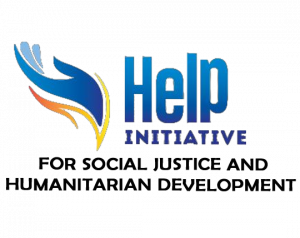Freedom of expression is one fundamental right that is not only entrenched in Section 39(1) 1999 Constitution of the Federal Republic of Nigeria but also backed up by Articles 19 and 20 of the United Nations Universal Declaration of Human Rights (UNDHR) to which the country is a signatory. Freedom of expression is the liberty of citizens to openly hold opinions without any form of unjustified limitations, restrictions, restraints, or fear of punishment. Freedom of speech is one of the hallmarks of democracy.
Since the launch of Twitter as a microblogging platform in Nigeria, it has shown its multiplicity in so many aspects. Apart from being a social interaction platform for expansion of networking opportunities, Twitter also rapidly became a platform for economic sustenance and livelihood for many Nigerians. This is in addition to being a major dais for political discourse and intellectual debates from local, National to global subjects, and a meeting point for many citizens on governance issues, either to express approval or otherwise about government policies and a means of getting information or news in real-time. Most importantly for a lot of Nigerians as many other nationals around the world, Twitter tops the list of social media platforms where people expose injustices and often get justice in the court of public opinion, which often translates into real time actions and consciousness. With its peculiar initiatives of hashtags and trending topics, it allows for movement building and rallying solidarity. What is more instructive is the present of important world powers, global agencies, and governments world-over on Twitter; lending credence to why governments and institutions are often easily held accountable by their citizens on Twitter and drawing international attention to their complaints by spotlighting them on the platform. Nigerians, no doubt have been a huge beneficiary of this connectivity and global spotlight especially in recent times, with the #ENDSARS protests-movement topping the list in 2020.
The ban of Twitter did not come as a surprise to many Nigerians because the highlight of President Buhari’s presidency has been the shrinking of the civic space. In the words of many Nigerians, the administration looks for different ways to frustrate the efforts of Nigerians. The ban of Twitter in Nigeria not only comes across as another attempt to further suppress the voice of the masses whom the Muhammadu Buhari-ledadministration swore to protect, but to further frustrate the efforts of the average Nigerians who are currently surviving by sheer self-engineered efforts at trying to make ends meet.
The administration had initially attempted a regulation of the social media space by introducing a ‘’Social Media regulation’’ Bill in 2019, which Nigerians kicked against vehemently in pockets of public outcry led by the civil society and other conscious individual citizens. During the EndSARS protests, the Nigerian government had, in several statements accused Twitter of aiding the agitation of young Nigerians especially after a solidarity-fist hashtag was customized in support of the movement, while Adamu Garba, a government apologist also threatened a lawsuit on Twitter and its CEO Jack Dorcey for ‘’inciting Nigerians’’. The battle between the Buhari-led administration in Nigeria and Twitter as a corporate entity therefore seemed drawn from that point. The silent war festered silently until June 1, when president Buhari tweeted a post that was alleged to have genocidal connotations ‘’Whoever wants the destruction of the system will soon have the shock of their lives. We’ve given them enough time… we will treat them in the language they understand.”. This tweet got a lot of attention and was reported by several Nigerians and was eventually flagged and taken down by Twitter. Following the flagging, the president’s account was suspended on June 2, 2021. That action of Twitter eventually seemed to be the trigger for the Nigerian government, which was immediately followed by the country’s information minister Mr. Lai Mohammed, who in a press briefing announced an immediate ban of Twitter in Nigeria.Following the pronouncement which was immediately effected by the government through data providers and telecommunications networks in Nigeria on the 4th of June 2021, Nigerians also found ways to circumvent the restrictions and many Nigerians continued their regular activities on Twitter through Virtual Private Networks (VPN) which allow them to disguise their offline locations and evade country-specific restrictions.
That circumvention, which seemed to have caught the Nigerian government unawares was further met by a pronouncement of the Attorney General of the federation, Abubakar Malami SAN, who further stretched the ban with a threat of prosecution on any Nigerian who disregarded the ban and continued to engage with Twitter. This, to many Nigerians and a lot of human Rights institutions that have since reacted, is one threat taken too far by the Nigerian government. While there is currently no law in Nigeria which could possibly be a basis for this prosecutorial threat, the cumulative action of the Nigerian government has also been frowned at as a major threat to the human Rights of Nigerians.
In addition to the legal angles, the implication of the ban is undoubtedly multifaceted. From the outright threat to social interactions and engagements that Twitter as a platform afforded to the teeming youth population of Nigerians, to the negative economic implications both to individual Nigerians and the country’s GDP, these consequences are far reaching. In the 21st century, Nigeria’s economy, civic space and even government has become increasingly reliant on digital media, just like other nations of the world. According to a post by NetBlocks, a cybersecurity and internet governance- monitoring organization, , each day of the Twitter shutdown will cost the Nigerian economy over 2 billion Naira ($6 million USD).
From the skyrocketing cost of living in Nigeria, fallouts from the EndSARS disruption, alarming rate of insecurities, corruption, to this ban, it appears that the present administration would go any length to further exacerbate the sufferings of Nigerians. The pertinent question on the lips of an average Nigerian now is to ’’what next’’?
Omowonuola Olarere is a lawyer and member of the Help Initiative Team.


Kudos! 👏